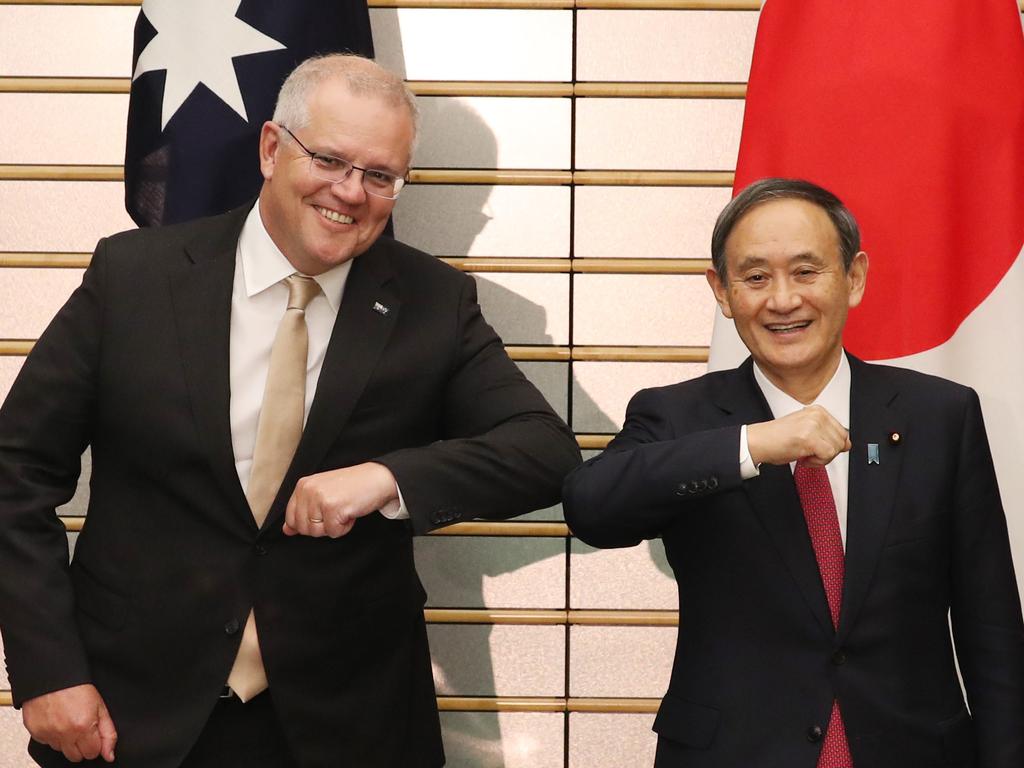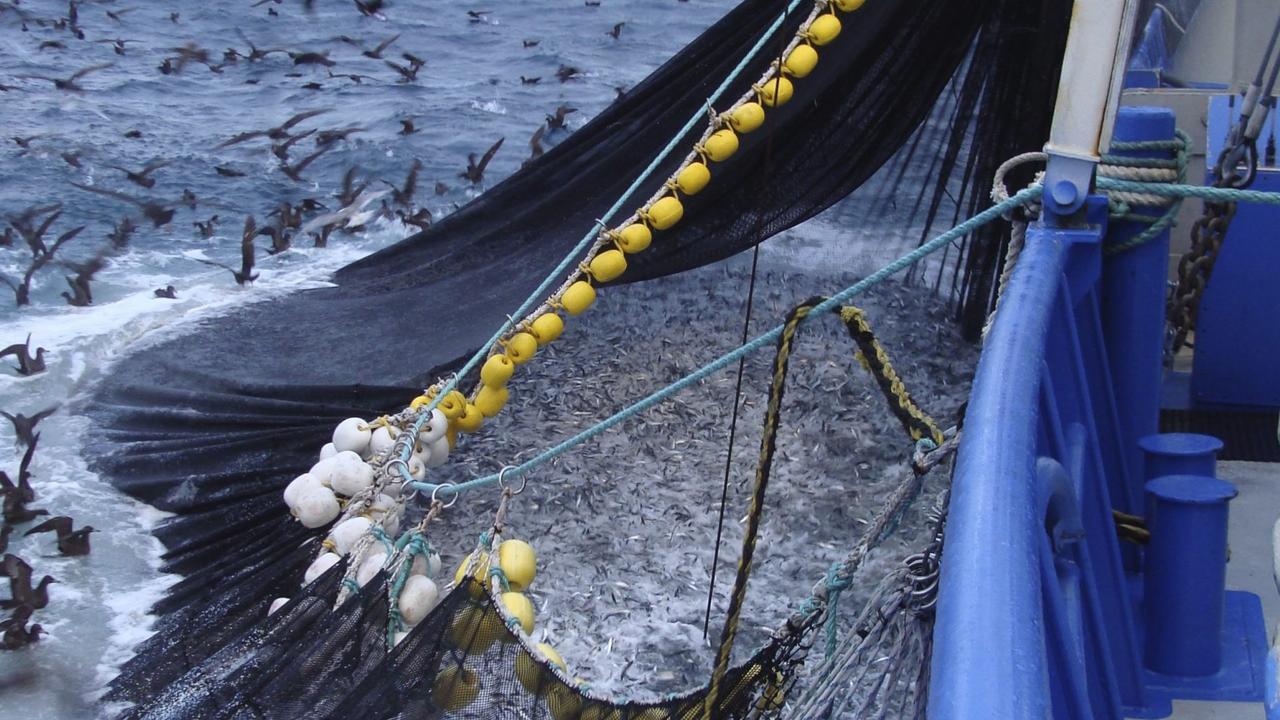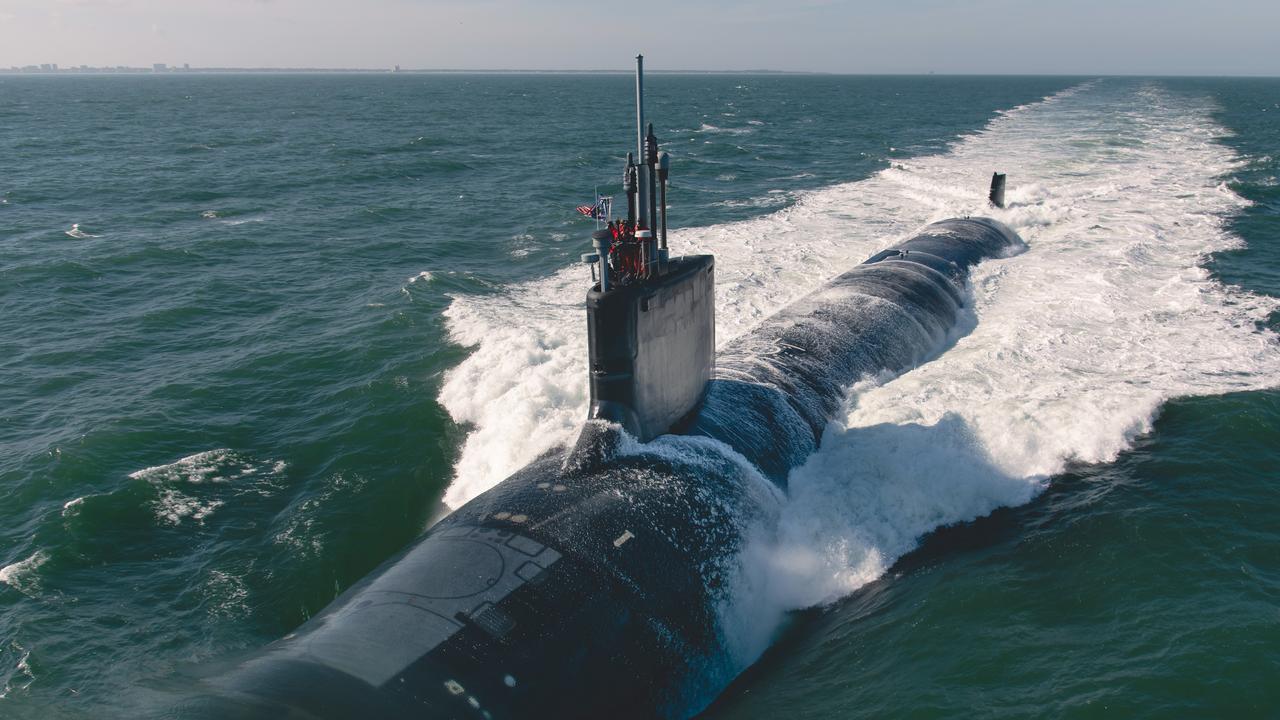Coronavirus Australia live news: Police guard South Australian supermarkets as lockdown looms
Officers will assist supermarket staff to avoid panic buying in South Australia, Police Commissioner Grant Stevens warned.
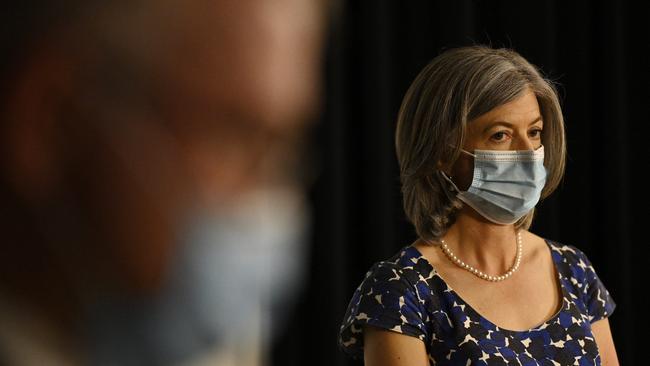
- PM backs hard lockdown
- Police to guard shops as lockdown begins
- How SA lockdown rules affect you
- SA residents caught in 10-hour Covid queues
- ‘We can’t shut with every outbreak’
- 1.6m in NSW vaccinated by September
Welcome to live coverage of Australia’s continuing response to the coronavirus pandemic.
The Prime Minister has backed South Australia’s drastic move to fight off a second wave as — with two new cases, and 22 now linked to the Parafield cluster — SA locks down for six days. The state has placed restrictions on leaving home, schools, businesses, and travel.
Nicola Berkovic 9pm: Law grads forced to celebrate in camera
There will be no chief justice, no wood-panelled courtroom, and no ceremonial signing of the Supreme Court roll.
But new lawyers in NSW and Victoria will get a chance to mark their admission to the legal profession with online celebrations led by legal luminaries from their state.
Traditional legal admission ceremonies have been cancelled this year due to the pandemic.
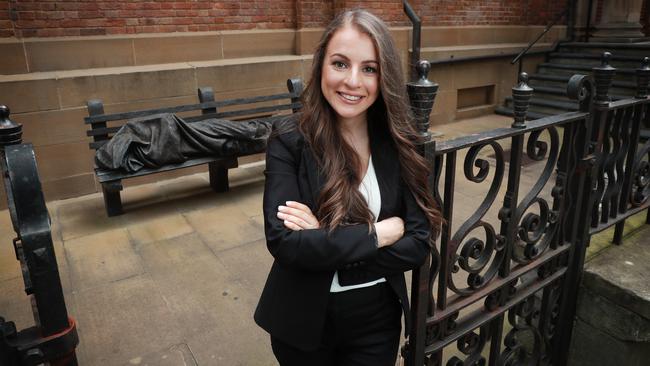
Caroline Overington 8.15pm: Flexible work next step in women’s lib?
For at least three decades, many women have been longing, if not always asking, for greater workplace flexibility.
Mothers, in particular, wanted to work part-time, and at least some days from home, but many were made to feel ashamed, as if they weren’t as committed to their jobs or it was assumed the arrangements weren’t really about work but somehow about goofing off.
Then came the pandemic.
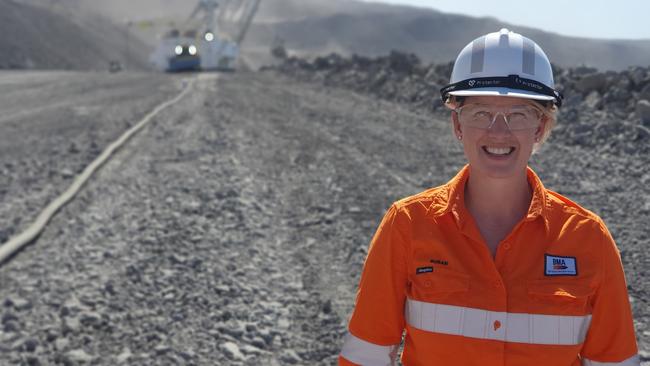
Will Pavia 7.30pm: Dolly delivers in search for vaccine
After the first announcement of an apparently effective coronavirus vaccine by Pfizer, President Donald Trump grumbled that he had not been given enough credit for the achievement.
Pfizer was never involved in the Trump administration’s vaccine production initiative. Yet when a rival company that did take US government funds announced this week that tests had shown its vaccine to be 95 per cent effective, Mr Trump was again overlooked.
Dolly Parton, the queen of country music, was widely praised for spurring development of the Moderna vaccine by giving $US1m to fund research in April.
A paper in the New England Journal of Medicine says the research was supported by “the Dolly Parton Covid-19 Research Fund” at the Vanderbilt University Medical Centre.
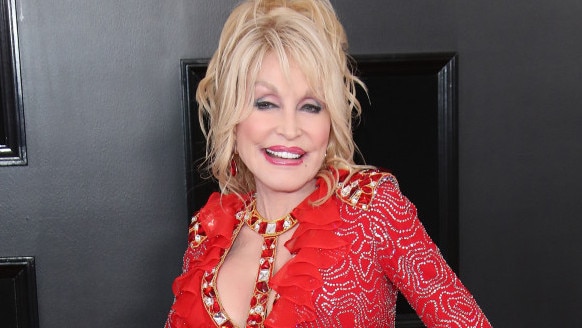
David Ross 6.45pm: Covid court shock for insurance sector
The insurance industry has been dealt a heavy blow and now faces losses in the hundreds of millions of dollars after a shock loss in the NSW Supreme Court.
The loss of the high-profile business interruption insurance test case launched in July by the industry in response to the COVID-19 pandemic now leaves insurers open to a barrage of claims.
In a unanimous judgment handed down in the NSW Court of Appeals, all five members of the bench found in favour of the two test case candidates who were attempting to have their claims for business interruption in relation to the pandemic heard.
The judges found COVID-19 was not to be considered a disease declared to be quarantinable under the Quarantine Act 1908.
AFP 6.20pm: NZ vows crackdown on backpackers
The New Zealand government ha promised to take action against backpackers relieving themselves at natural beauty spots as part of post-coronavirus tourism plans.
Kiwis have long complained about so-called “freedom campers” who travel the country in campervans that do not have toilet facilities and leave human waste by the side of the road.
Tourism Minister Stuart Nash said the practice did not fit New Zealand’s “100 per cent pure” image and that international visitors could expect changes when borders eventually reopen.
“They need to buy into our sustainability brand and what we stand for as a country — defecating on the side of the road and waterways is not who we are as a nation,” he said on Wednesday.
Mr Nash said he planned to ban travellers from hiring campervans that were not self-contained as part of a tourism industry reset when the COVID-19 pandemic eases.
“My ambition is that once global borders open, New Zealand is considered by the world’s most discerning travellers as one of the top three places in the world to visit,” he said.
Before the pandemic, tourism was one of New Zealand’s biggest money-spinners, with about four million annual international visitors contributing NZ$16.2bn ($21.2bn) to the economy.
Mr Nash suggested that visitors in future should follow his own example before setting out to explore New Zealand’s rugged natural wonders.
“I always go before I leave home,” he said.
READ MORE: PM backs South Australia’s hard lockdown
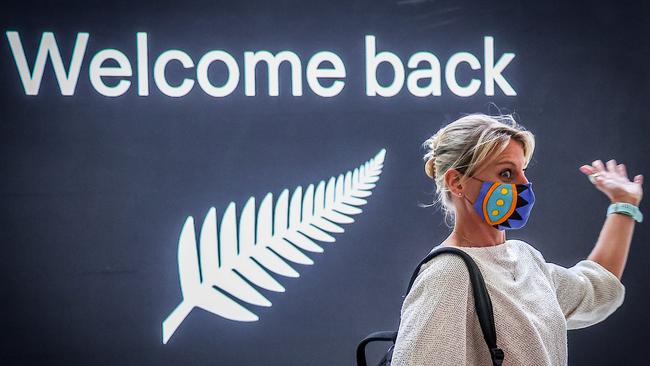
Eli Greenblat 5.45pm: Coles announces grocery limits
Coles has quickly followed Woolworths to reintroduce buying limits at its stores in South Australia as the state prepares for a six-day lockdown and shoppers have already swarmed the supermarkets to strip the shelves.
Coles announced late on Thursday that it had a two-pack-per-customer limit at all supermarkets and Coles Express stores in South Australia, as well as Coles Online Orders for South Australian customers.
The limits are on the following items:
● Pasta
● Chilled Pasta
● Flour
● Frozen Vegetables
● Rice
● Frozen Fruit
● Sugar
● Frozen Chips
● Eggs
● Frozen Desserts
● Chicken Breasts
● Toilet paper
● Chicken Thighs
● Tissues
● Mince Meat
● Paper Towels
● Fresh White Milk
● Liquid Soaps
● Long-life milk
● Hand Sanitiser
● Masks
READ MORE: Working from abroad is the new working from home
Greg Brown 5.20pm: Liberal MP pans SA restrictions
Liberal MP Tony Pasin has criticised the Marshall government over its six-day lockdown.
Mr Pasin, from the South Australian seat of Barker, said his constituents lived 500km from the outbreak but would be impacted by the onerous restrictions.
“This decision has come out of the blue,” Mr Pasin told Sky News on Wednesday.
“I would have hoped we would have an approach that would have perhaps better understood how we could live with the disease.”
READ MORE: Supermarket shelves stripped bare … for six days inside?
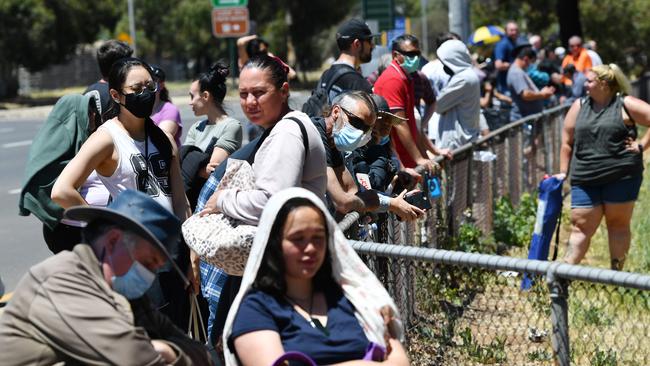
Rosie Lewis 5.05pm: Tourism sector wants consistency on hot spots
The tourism industry said SA’s restrictions should be respected to help the state’s economy get back on track but its response to the coronavirus cluster raised “the serious confidence-sapping issue of having no consistency to how we look at defined COVID hot spots”.
“This has played out poorly with varied responses and will do nothing for future confidence in travel and recent genuine efforts to fully reopen our domestic visitor economy by the Christmas goal,” Australian Tourism Industry Council executive director Simon Westaway said.
“We need to sort out the hot spots as this will undeniably raise its head again.”
The commonwealth’s definition of a hot spot in metropolitan areas is three consecutive days of 10 locally acquired cases per day – a threshold which SA’s outbreak has not yet met.
READ MORE: What is it like to take part in a vaccine trial?
Eli Greenblat 4.45pm: Woolworths product limits for SA
The nation’s biggest supermarket chain Woolworths has reimposed strict product limits for its stores in South Australia.
That includes toilet paper and stretches across the supermarket aisle to include popular grocery items such as cleaning products, paper towels, eggs, milk, frozen fruit, meat and fresh produce.
It comes amid a rush ahead of the midnight lockdown, which could threaten supplies as supermarket shelves are stripped.
Shoppers at Woolworths will also need to wear face masks.
Woolworths announced the SA purchase limits this afternoon, for both in-store and online from Thursday.
A limit of two items covers cleaning products, personal hygiene, meat, fish, vegetables, dairy, fruit and frozen and canned goods.
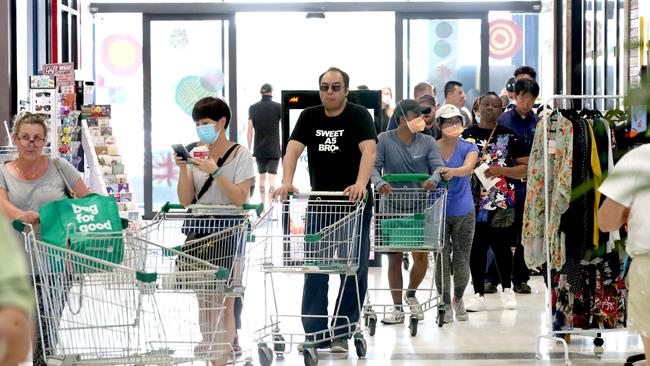
“The limits will help ensure our customers have fair access to fresh food and essentials at Woolworths during the course of the restrictions,’’ Woolworths said.
Woolworths supermarkets South Australian general manager, Karl Weber said: “We understand this is an anxious time for our South Australian customers, but we encourage everyone to continue shopping as they usually would and only buy what they need.
“As an essential service, our supermarkets will remain open to support our customers’ food and grocery needs. We have plenty of stock, which will continue to flow to stores from our distribution centres.”
“From Thursday, Woolworths expects all customers entering its stores in South Australia to wear a face mask as per the government’s directive. Face masks have been readily available to Woolworths team members nationally since April 2020 and will continue to be.
Health and safety ambassadors at the front of every store will wipe down trolleys and hand sanitiser will be readily available.
Woolworths is moving to ramp up extra online delivery capacity.
Purchase limits apply to: Toilet paper, paper towel, rice. pasta, flour, sugar, frozen vegetables, frozen potato, frozen fruit, frozen fish, frozen poultry, longlife milks, antibacterial wipes, hand wash, disinfectants, bleach, cleaners, noodles, canned tomato, canned vegetables, canned legumes, disposable gloves, sponges and scourers, baby wipes, tissues. dishwashing liquid, milk, chilled juice, prepaakced bacon, eggs, mince, sausages, burgers, rissoles and meatballs, prepacked carrots, prepacked potatoes, prepacked onions, bread, frozen seafood, meat.
Matthew Denholm 4.35pm: SA visitors to Tasmania must isolate for 14 days
All people who have arrived in Tasmania from South Australia since November 7 will have to remain in self-isolation for 14 days.
It had been hoped those who arrived in the holiday isle between November 7 and Monday would be able to leave self-isolation from Thursday.
However, Public Health Director Mark Veitch on Wednesday said it had been decided to keep these recent arrivals in self-isolation, either in their own suitable accommodation or government-run quarantine hotels. “The risk (from them) is quite low but not zero,” he said.
Anyone arriving from SA since Monday’s declaration of that state as “medium risk” would have to go into quarantine for 14 days.
Premier Peter Gutwein praised the response by the SA government in imposing a six-day lockdown. “We know from our own experience going early and going hard is the right thing to do,” he said. “This is a serious wake up call (to all Australians).”
He urged South Australians planning to travel to Tasmania in the near future not to. “Don’t come,” he said.
READ MORE: Deloitte to reimburse Covid pay cuts
Rosie Lewis 4.05pm: Morrison backs SA’s snap lockdown
Scott Morrison has endorsed South Australia’s hard six-day lockdown, saying the “precautionary and temporary measures with a clear end date” will keep the state safe.
The Prime Minister spoke to SA premier Steven Marshall on his return from Tokyo and has remained in contact with Health Minister Greg Hunt and Acting Chief Medical Officer Paul Kelly while on the short overseas trip.
“The establishment of a pre-emptive and temporary six-day lockdown to keep South Australians safe and stay ahead of the outbreak draws on lessons from earlier outbreak experiences. These are precautionary and temporary measures with a clear end date,” Mr Morrison said.
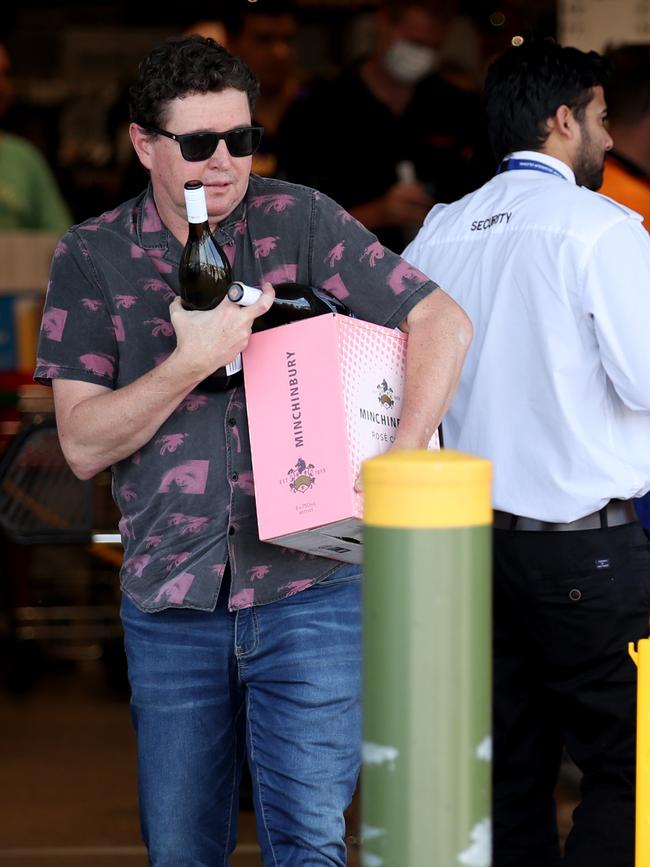
“We will continue to support South Australia and the SA Government in every way we can as they deal with this most recent outbreak. I want to thank South Australians for their patience and co-operation.”
Government sources said Mr Morrison offered a similar response to Victoria’s lockdown when it was first announced.
Mr Morrison’s support for SA’s harsh restrictions puts him at odds with the Business Council of Australia, which said it was another blow for business and the response needed to be proportionate to the risk.
SA’s chamber of commerce and industry said the six-day “circuit breaker” was “absolutely needed” despite warning the swiftest and toughest restrictions seen to date in any state or territory could be “devastating” for business and the economy.
READ MORE: Supermarket shelves stripped bare. for six days inside?
Emily Cosenza 4pm: Police to guard shops as lockdown begins
South Australian shoppers should expect to see police monitoring supermarkets as the state goes into lockdown at midnight.
Police Commissioner Grant Stevens warned that officers would be assisting supermarket staff on Wednesday afternoon in a move to avoid panic buying.
Shoppers have already begun queuing in long lines to do their grocery shopping after the lockdown was announced earlier on Wednesday.
Mr Stevens said it would be a “particularly challenging time” for supermarket and retail staff and asked shoppers to be patient.
“There is no need for people to rush to supermarkets, and if you do go shopping this afternoon, you should expect you'll be managed by staff, and police will be on standby to attend,” he said.
“If we do see any civil disorder, we will be taking action. There is no need to be panic buying.
“Supermarkets will remain open.”
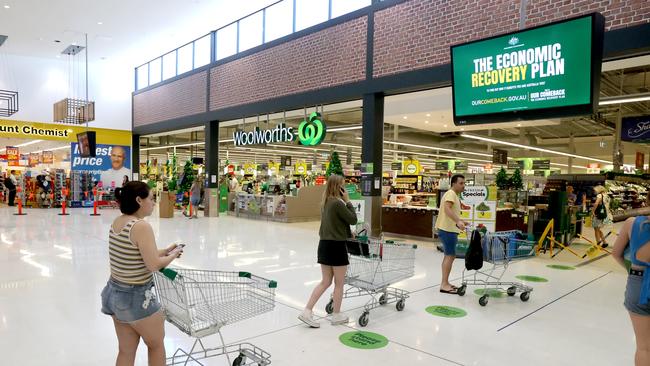
All residents across the state, with the exception of some essential workers, have been told to stay home for the next six days as of midnight on Wednesday.
All non-essential businesses will be closed, while some essential services – like supermarkets and medical services – will remain open.
Grocery shopping is one of the few reasons South Australians can leave their properties during that time, but only one person per household can go each day
Mr Stevens said it was expected that people did the right thing and abided by the “extreme level of imposition” to help police do their job.
“Policing can only provide so much in regards to improving a safe environment for the community. It relies on the community doing the right thing and supporting each other,” he said.
“Clearly, if you’re out during these six days, you should have the ability to justify the reason for your travel. We will be out there making sure people do the right thing.
“If you deliberately disobey these restrictions and ignore that advice you’ve been given, then you should expect we’d take action.”
Panic buying began on Monday after Premier Steven Marshall announced tougher restrictions in response to the Parafield cluster.
Toilet paper was flying off shelves at stores across the state.
As you are probably now aware SA will be implementing a circuit breaker from 12:01am Thurs 19 Nov 2020 for the next 6 days aiming to stop the spread of COVID-19 in our state. Official Directions will be published at a later date. View more here: https://t.co/RtQm8ygdzw pic.twitter.com/eD4F6uw6oz
— South Australia Police (@SAPoliceNews) November 18, 2020
Rachel Baxendale 3.28pm: Andrews flags relaxation of Vic mask rules
Victorians are likely to be allowed to go without face coverings in outdoor settings where they are not in contact with other people from early next week, after Premier Daniel Andrews flagged a relaxation of his government’s compulsory masks policy on Wednesday.
Currently Victorians can be fined $200 if they are not wearing masks while outside their homes, but Mr Andrews indicated a planned relaxation of coronavirus restrictions scheduled to be announced on Sunday is likely to include an easing of mask rules.
However, he indicated the wearing of masks in indoor settings and crowded locations was likely to continue for some time, despite Victoria reaching 19 straight days with no new coronavirus cases.
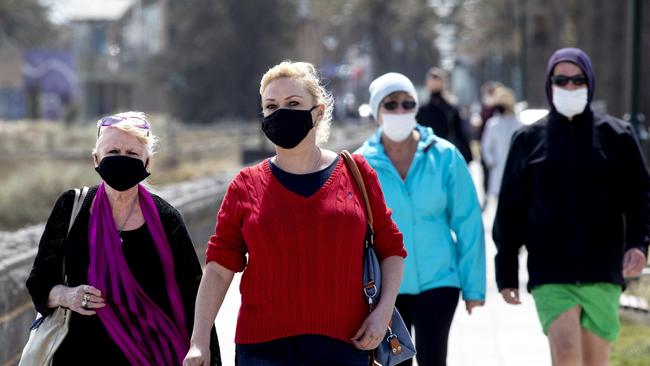
“I think on Sunday you’ll see some changes to mask policy,” Mr Andrews said.
“That’ll be principally I think where you’re outside and you’re away from others.
“I’ll put it to you this way: no one enjoys wearing a mask, and no one enjoys them as the weather gets warmer. However, for a very small inconvenience, there is a very large benefit. “Masks have played a significant part in driving these case numbers down, and they will play a significant part in keeping them down.
“Again, a bit like the borders, they won’t be here forever. They won’t be a feature of our public health response for all of next year, for instance, but for so long as they’re serving a purpose, then they’ll be part of our rules.”
READ MORE: More money for COVIDSafe app
Richard Ferguson 3.25pm: Weekly tests for hotel quarantine workers
All hotel quarantine workers will now be tested for COVID-19 every week in all states and territories, following the latest outbreak in Adelaide.
Scott Morrison — who is flying home from Japan — and Health Minister Greg Hunt have spoken to the South Australian government about their plans for a six-day lockdown to flatten the curve.
Acting chief medical officer Paul Kelly said on Tuesday that the national cabinet has accepted his recommendation to test quarantine workers weekly, and labelled quarantine is the biggest risk of a third wave.
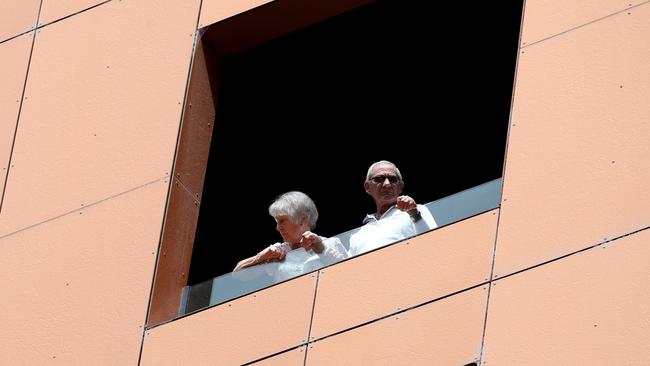
“The AHPPC gave advice and it has been accepted by the prime minister to increase our surveillance at the quarantine hotels,” Professor Kelly said in Canberra.
“So from now, all states and territories have agreed that anyone with quarantine facilities, anyone working in those quarantine facilities will be tested at least weekly to make sure that we increase that surveillance in that area.
“That is our major risk now of reintroduction of COVID-19 into Australia, as we have seen in Adelaide over recent days.”
READ MORE: No room for complacency in hotel quarantine
Rosie Lewis 3.05pm: ‘Another blow’: Business council slams SA lockdown
Australia’s peak big business body has slammed South Australia’s six-day hard lockdown as “another blow for businesses” just as the economy was reopening, calling instead for a proportionate response.
Business Council of Australia chief executive Jennifer Westacott said it was “very disappointing” that hotel quarantine procedures had let the country down yet again.
“We must ensure that the response is proportionate to the level and spread of the risk and in line with the evidence-based, proven approach taken by NSW,” Ms Westacott told The Australian.
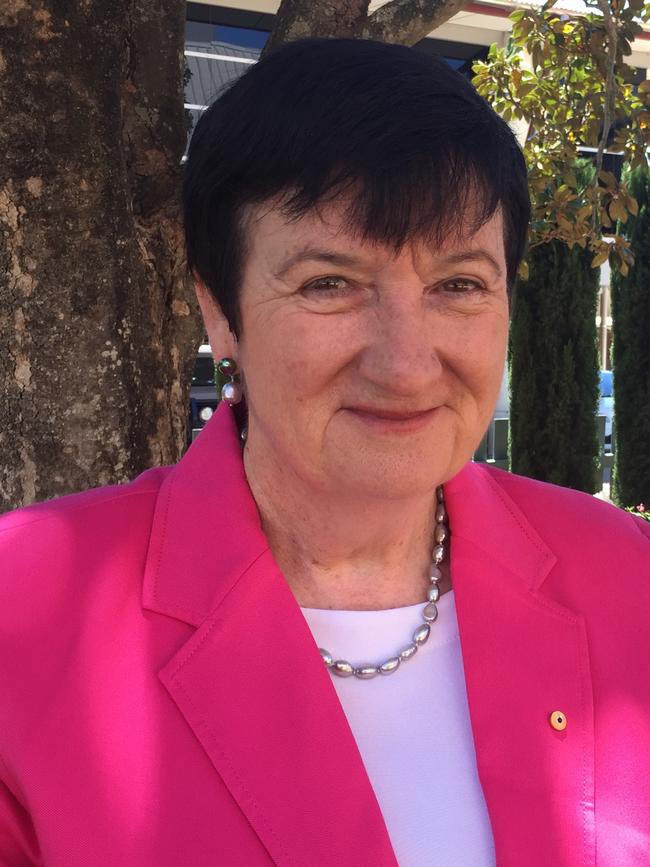
“This is another blow for businesses just as things were improving. We need to learn from our experiences because people’s lives and livelihoods depend on it.
“Local outbreaks aren’t a surprise, this is a highly contagious virus and we have to live alongside it. What matters most is that we have the right systems in place to manage and contain outbreaks.’’
Ms Westacott said it was critical SA had the best possible contact tracing systems in place.
READ MORE: Call for rights act to protect people in lockdown
Olivia Caisley 3.03pm: ‘Call me Yoshi’, Suga tells PM
Scott Morrison says his relationship with his Japanese counterpart, Yoshihide Suga, “got off to a cracker of a start” when meeting for the first time in Tokyo.
The Prime Minister said he had been invited to call Mr Suga “Yoshi” and invited him to visit Australia next year to formally sign a historic defence pact that streamlines the use of each other’s military bases.
Mr Morrison said Mr Suga could call him “ScoMo” as his predecessor, Shinzo Abe, had done.
“I think our first impressions were shared and they were very warm,” Mr Morrison said. “We did have the opportunity tonight to have a one-on-one discussion, obviously with interpreters … but despite the language barrier, there was a very easy and warm connection.
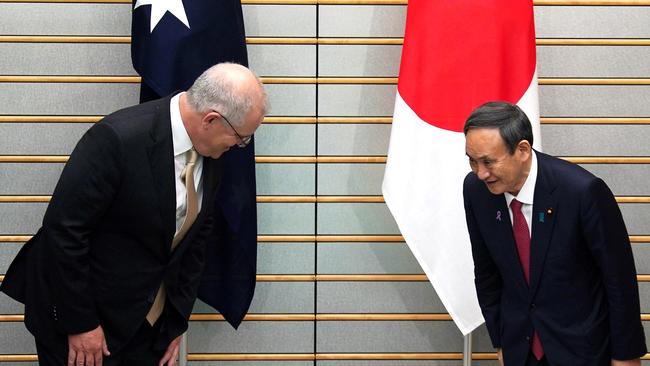
Mr Morrison said the fact he had travelled during a pandemic and would have to quarantine for two weeks when he returns to Canberra and miss part of the final parliamentary sitting fortnight was a testament to the strength of the relationship.
“It’s not a small thing for a prime minister in the middle of a pandemic to take that opportunity, and I have two weeks’ [quarantine] when I return, including having to participate in Parliament by video link,” he said. That’s how important it was to me to ensure that it continue, the momentum we had with Prime Minister Abe.”
Mr Morrison was the first foreign leader to speak to Mr Suga when he took office from Mr Abe in September, and his physical visit signals a stepping up of global engagement in a season of virtual summits.
Mr Suga pulled out all the stops for the Australian prime minister, marking his arrival at the Kantei with a performance of Advance Australia Fair by a masked-band.
Mr Morrison said that he and Mr Suga were similar in the way they had also come to office in “unpredictable circumstances”.
Mr Suga became Japan’s leader in September after Mr Abe stepped aside due to health issues, while Mr Morrison was elevated to prime minister after Malcolm Turnbull was rolled as leader.
READ MORE: China responds to Aust-Japan defence pact
Patrick Commins 2.38pm: Workers’ pay stagnates despite recovery
Evidence of a solid economic recovery over the three months to September did not extend to workers’ pay, where wage freezes and delayed increases from enterprise bargaining slowed wages growth to a virtual standstill over the quarter.
The Australian Bureau of Statistics’ wage price index inched up 0.1 per cent, versus the June quarter’s 0.2 per cent increase, when the COVID-19 crisis and national restrictions sparked wage freezes and mass lay-offs.
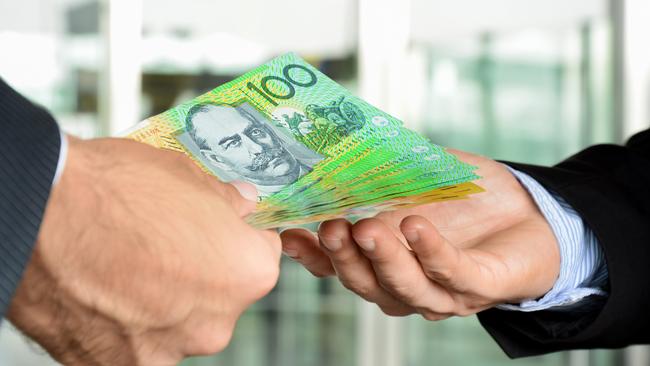
Over the year to September, annual wage growth decelerated from 1.8 per cent to 1.4 per cent, the seasonally adjusted figures showed – the slowest in the history of the data stretching back to 1997.
READ the full story here
OLIVIA CAISLEY 2.31pm: PM serves up some gifts for Japanese counterpart
TOKYO: A Bill Granger cookbook, an Indigenous painting and a set of Sydney 2000 Olympic medals are among the gifts Scott Morrison presented to his Japanese counterpart, Yoshihide Suga, when the two leaders met for the first time in Tokyo.
Mr Suga, who is said to have a penchant for the ricotta pancakes served at Aussie chef Bill Granger’s cafe in Tokyo’s Ginza district, is understood to have loved the gifts.
The Prime Minister travelled overseas for the first time since the beginning of the coronavirus pandemic on Monday to meet with Mr Suga, but will have to quarantine for two weeks when he returns to Canberra — a move, Mr Morrison said, was a testament to the strength of the relationship.
A red hand-blown vase emblazoned with a kangaroo paw by Aussie artist Amanda Louden was picked out by Jenny Morrison and given to the Japanese prime minister’s wife, Suga Mariko.
An Indigenous painting called ‘Bush Plum Dreaming’ by Sonya Petrick Ngwarraye was also given to Mr Suga.
A description about the $730 work and the dreamtime story behind it says “the bush plum seeds were said to have blown across the ancestral lands by strong winds before eventually blossoming into fruit” – perhaps a thinly veiled nod to Mr Suga and Mr Morrison’s “blooming” relationship.
Mr Morrison was the first foreign leader to meet with Mr Suga on Japanese soil since he took over from Mr Abe in September and was met by a band that played a soaring rendition of both the Australian and Japanese national anthems.
Japanese PM Yoshihide Suga pulls out all the stops for Scott Morrison as the two world leaders meet for the first time. Epic performance of the Australian and Japanese national anthems. @australian #auspol 🇯🇵🇦🇺 pic.twitter.com/G2OVYVoC7K
— Olivia Caisley (@livcaisley) November 17, 2020
During his whistlestop tour to Tokyo Mr Morrison also squeezed in a meeting with Mr Suga’s predecessor, Shinzo Abe.
The former prime minister received a set of two whisky glasses from Mr Morrison, valued at $151 and a Single Malt whisky from Lark Distillery in Tasmania, valued at $241.
Mr Morrison was the first foreign leader to speak to Mr Suga when he took office from Mr Abe in September, and his physical visit signals a stepping up of global engagement in a season of virtual summits.
The key part of the trip was the “in-principle” signing of a reciprocal access agreement that streamlines the two nation’s use of each other’s military bases.
Once the signing ceremony was complete the leaders dined on sashimi, Japanese fillet steak with taro, asparagus, burdock and bell pepper.
Australian wine, which is currently the subject of a fierce trade war with China, was not on the menu.
The leaders were aptly offered Japanese varieties — a 2017 Izutzu chardonnay and a 2015 Solaris Shinshu cabernet sauvignon.
READ MORE: China responds to Australia-Japan defence pact
Nicola Berkovic 2.24pm: Call for rights to protect those in lockdown
The Law Council of Australia has called for a federal human rights act to protect basic rights and freedoms, arguing measures imposed in response to the pandemic had shown why a framework was needed to balance conflicting rights.
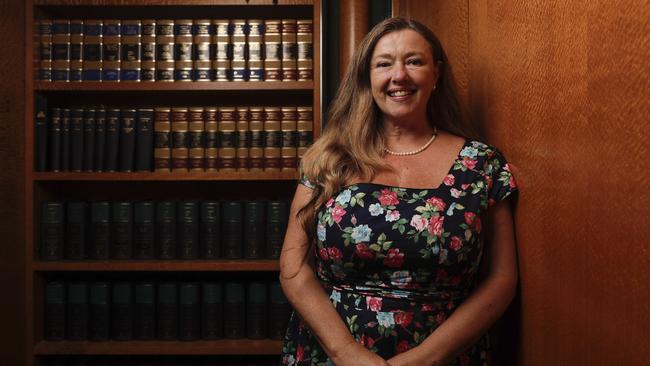
Controversially, its proposal would include a right for individuals to sue the government for damages to compensate them for breaches of their human rights, without facing the usual costs orders if they were unsuccessful.
READ the full story here
David Penberthy 1.48pm: South Australians forced to stay home, wear masks
South Australia will be plunged into a six-day lockdown from midnight Wednesday closing every non-essential business and forcing almost every resident to stay home and wear masks when outside.
Billed by Premier Steven Marshall as a “community pause”, the six-day lockdown is a dramatic bid to break the back of a fast-replicating coronavirus cluster which health authorities fear could spiral out of control.
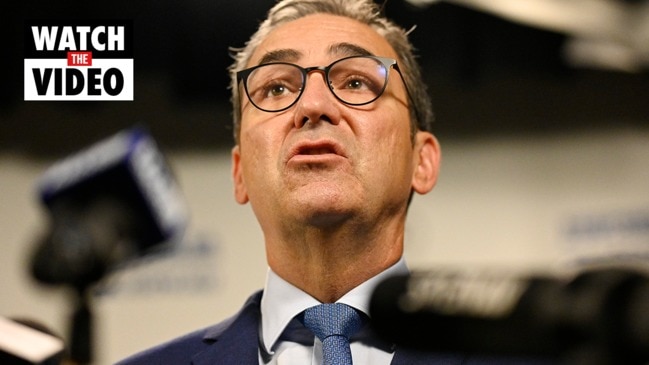
“There is no second chance to stop a second wave,” Mr Marshall said.
As of midnight, almost every business will close including shopping malls, restaurants including for takeaway food, pubs, cafes, open inspections, elective surgery, along with every school and the state’s three universities.
Residents are instructed to remain indoors, with exercise also banned, and any person who must leave to do essential food shopping or to perform essential work must wear a mask when outside.
While SA recorded just two new cases on Wednesday, Chief Medical Officer Professor Nicola Spurrier explained that this strain of the virus was fast-replicating and already up to its fifth generation in the community.
With more than 50 public places listed as hot spots where infected persons travelled in the past fortnight, health authorities are worried that they simply cannot process the vast number of people seeking tests, with huge queues air testing centres across the city and suburbs since the cases were revealed on Sunday.
“We need to stop the virus right at this point,” Professor Spurrier said.
“This is still very early days in the cluster. All positive cases have been linked and that’s a phenomenal effort.”
Much of the concern about the outbreak stems from a pizza bar in the western suburb of Woodville where an infected security guard from the Peppers medi-hotel also worked part-time. That pizza bar is now at the centre of transmission fears, even for customers who ordered home delivery, with Professor Spurrier urging anyone who had ordered food from there between November 6 to 16 to get tested even if they had no symptoms.
Premier Marshall urged all South Australians to get behind the changes to break the back of the cluster.
BREAKING: A worker at a DIFFERENT medi-hotel has tested positive.
— Mark Mooney (@MarkMooney7) November 18, 2020
He works in the kitchen at the Stamford Plaza.
He caught it from the Woodville Pizza Bar where a security guard from the Peppers Hotel (positive case) works part-time.
Unbelievable!#7NEWS pic.twitter.com/bBI60wfWKm
“I am asking you to rise to the challenge today,” he said.
“We cant and we must follow the health advice. We need to continue to move very quickly.”
SA Police Commissioner Grant Stevens said all regional travel would also be banned and that further restrictions could be made known later on Wednesday.
Rachel Baxendale 1.38pm: Victorians handed $200 vouchers for regional travel
The Andrews government will hand out 120,000 $200 vouchers to encourage visits to regional Victoria, as part of a $465m tourism recovery package included in next Tuesday’s state budget.
The package comes after many tourism businesses were devastated by bushfires last summer, only to find themselves without visitors for much of the year due to coronavirus restrictions.
Visiting the Dal Zotto winery at Whitfield in northeast Victoria’s King Valley, Premier Daniel Andrews said the $28m voucher initiative was expected to be up and running by December.
Victorians will be able to apply for the vouchers on the condition that they spend at least $400 on accommodation, attractions or tours in regional Victoria — including at hospitality venues.
Tourism Minister Martin Pakula said the details of how the scheme will work were yet to be finalised, but it is expected to operate in a similar manner to comparable schemes in Tasmania and South Australia.
Another $149m will go towards building new visitor accommodation, improving significant tourist trails, and campaigns to encourage more visits to local businesses producing food and wine.
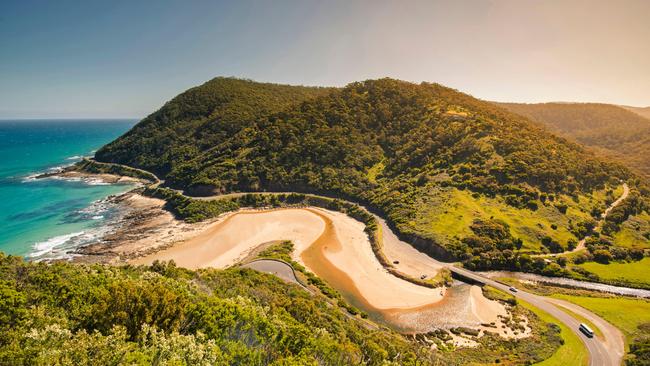
There will also be a series of grants for project in particular regions, including $47.5m for visitor infrastructure on the Great Ocean Road, an $18.5m Gippsland tourism recovery package, $15m for the Falls Creek to Mt Hotham hiking trail, $13m for trail and visitor upgrades in the Grampians, and $4.3m for the continued growth of the prosecco Road winery district in northeast Victoria, including helping to establish accommodation at Dal Zotto Wines.
A $150 million regional tourism investment fund will go towards “nature-based, First Nations, arts and culture, and food and wine tourism projects”, while $16m will support a “First Peoples tourism businesses” through advisory services, mentoring and digital skills development.
A further $106.5 million in tourism industry support will include a $58 million marketing boost for Visit Victoria.
There will also be $20m for the regional events fund to support events outside Melbourne, and $9.7m for the Melbourne Convention Bureau’s business events program.
READ MORE: Regional hotels you need to sample now
Angelica Snowden 1.31pm: WA slams border to SA shut again
A hard border between Western Australia and South Australia will be reinstated from 6pm tonight, just four days after it was lifted.
Premier Mark McGowan said he would take the “ultra cautious” approach, after a coronavirus cluster in Adelaide was expected to increase.
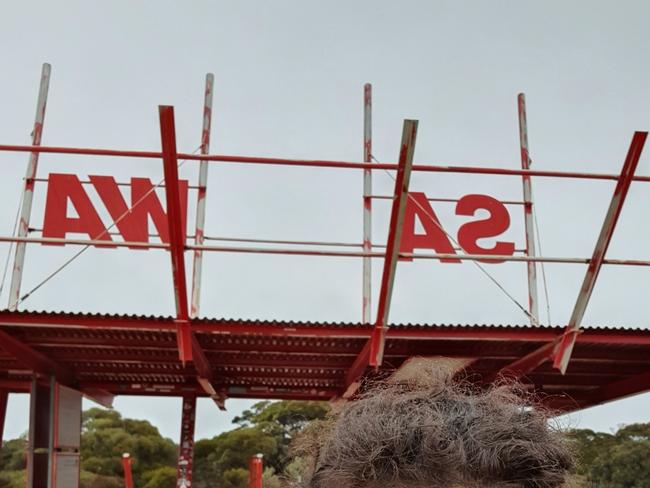
“We don’t know how many people are out on the Nullarbor … many of them may not even know, but we have just put in place a measure to protect the state.
“I expect most of them will be West Australians returning home so clearly the police will deal with that as of six o’clock tonight.”
Mr McGowan declared he supported South Australia Premier Steven Marshall and said if he decided to go into further lockdown it would be the “right thing to do”.
“Obviously the criticism that Dan Andrews received from federal Liberal ministers was disgraceful, disgraceful and it will be a test for them, will they criticise Steven Marshall the same way? I suspect not,” he said.
Despite state and territory leaders publicly arguing about border closures as a COVID control measure, Mr McGowan insisted they had “broadly” worked well together.
“We have a different view about how to manage … we have a different view to the Commonwealth but overall we have worked relatively cooperatively and the results are there for all to see,” he said.
“My view is the best thing to do is keep the virus out … the model by which you have outbreaks and then contact trace and crack down on it is not the best model.
“That seems to be the New South Wales model, it is not the best model.”
Debbie Schipp 1.12pm: How South Australia lockdown affects you
South Australia has been placed ‘on pause’ for six days from midnight as it grapples with a second virus outbreak.
SA Premier Steven Marshall said: “We need a circuit breaker to stay ahead of this. We need breathing space for a contact tracing let’s to protect the elderly, to protect the vulnerable, to protect our entire community. That is why, today, I am asking you to rise to the challenge again.”
“As of midnight tonight we need our community to pause for six days. A series of wide-ranging restrictions will be implemented to significantly reduce mobility in the community to stop the spread, to stamp out this virus.”
With two new cases, and 22 now linked to the Parafield cluster, the lockdown from midnight will include:
* All schools except for children of the essential worker and vulnerable children
* Universities
* Takeaway food
* Pubs, cafes, coffee shops and food courts
* Elective surgery except for urgent operations and cancer treatment
* Open inspections and auctions for real estate.
* Outdoor sport and physical activity – You cannot leave you home for exercise
* Regional travel
SA Police Commissioner Police Commissioner Grant Stevens says people will be restricted from going out of their house for a 6-day period.
“If you are in a location at the commencement of these restrictions you will be required to stay there,” he said.
“Aged care and disability residential care will be an lockdown. Factories other than food and medical products will be closed except for where it is necessary for them to remain open to prevent damage to machinery.
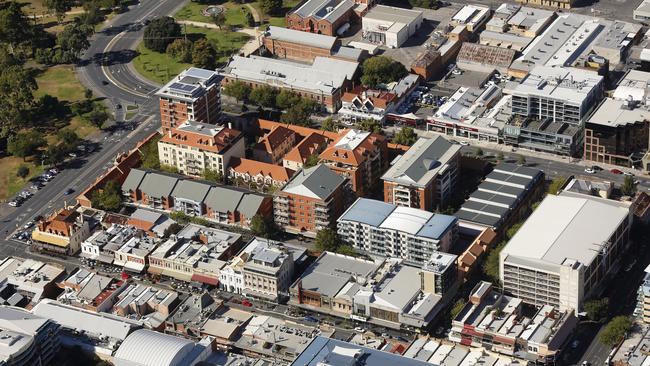
“The construction industry will be closed for six days.
“The message is stay at home unless you are accessing essential services or you are essential will not be permitted outside of the home for a 6-day period.
“Food purchases will be available, you will be able to leave, one person per household once day to access groceries.
“Agriculture will be able to move about to ensure the safety and welfare and processing of animals, and the production of dairy and other agricultural services.
“End of life visit also be available through organised arrangements. That is the list as it stands at this point but I’ve stressed we are still working on the final list in terms of what those restrictions will be and what will be allowed to operate and we will be updating further into the afternoon and evening is that list becomes available.”
Masks will be mandatory in all areas outside homes under the snap lockdown, and outdoor sport is banned.
Critical infrastructure including water, power and telecommunications will be able to function.
Supermarkets will remain open, but there will be limits on access, and specific access to vulnerable members of our community to ensure that they can access goods and services.
Medical, including mental health, supplies, access to services will be available, public transport will be open.
Petrol stations, access to financial institutions and post offices will be able to be accessed.
Mining, smelting and large factories will also be able to remain open but only those parts of the facilities that will need to operate to ensure continuity of service delivery or to prevent damage to the plant.
Childcare will be available only for families of essential workers.
The minimum operations of government including local government will be permitted to operate.
Veterinary surgeries can remain open.
Staff writers 1.09pm: NSW goes another day with zero cases
NSW recorded no new cases of locally acquired #COVID19 in the 24 hours to 8pm last night.
— NSW Health (@NSWHealth) November 18, 2020
Seven cases were reported in overseas travellers in hotel quarantine. This brings the total number of cases in NSW to 4,320 since the start of the pandemic. pic.twitter.com/qHIX54cHgK
Remy Varga 12.45pm: Abattoir owner learnt of first case in the news
The owner of the west Melbourne abattoir that saw the worst outbreak during Victoria’s first wave says he learnt of what is believed to be the cluster’s first positive through media reports.
Tony Kairouz, who is also Cedar Meats general manager, said on Wednesday he had never been contacted by the Department of Health and Human Services concerning an April 2 case, and was first notified when a worker tested positive on April 27.
“I know as much about that April 2nd case as what you do and I’ve only heard that through media reports,” he told a parliamentary inquiry scrutinising the state’s contact tracing regime.
“We have not heard anything further from DHHS or anyone else to suggest we had an active case.”
In early May, DHHS confirmed that the first case linked to the cluster was on April 2. Chief Health Officer Brett Sutton told the inquiry the worker said he had not been onsite at Cedar Meats for four weeks before undergoing the test.
Mr Kairouz said a worker was hospitalised after severing his thumb on April 24 before developing a cough, prompting a coronavirus test in hospital.
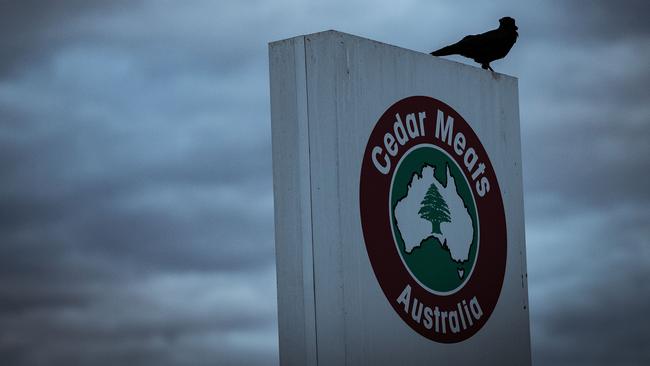
“Our understanding was he had developed a cough in the hospital and for that reason was tested for COVID, it wasn’t known he had COVID until later on in that weekend,” he said.
“I’m not sure exactly when DHHS knew or when they knew, but our first knowledge was on Monday morning when we had got a call from DHHS to let us know that the person who had severed his thumb had developed COVID.”
Read the full story here.
Joyce Moullakis 12pm: Housing slump risk to economy over: CBA chief
Commonwealth Bank chief executive Matt Comyn has declared a sharp decline in the housing market is no longer a near-term risk to the economy, given the sector is holding up well and loan applications are strong.
CBA, the nation’s biggest home lender has become more positive on the residential housing sector, despite the impact of COVID-19 pushing the economy into its first recession in almost three decades.
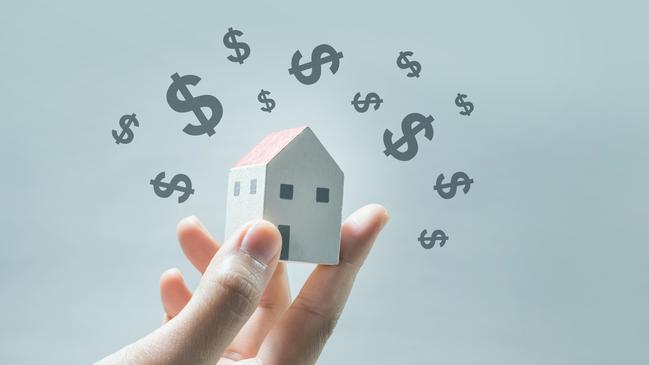
Mr Comyn said his optimism was due to rebounding consumer and business confidence and about $100bn in “surplus savings” across the economy.
“If the borders can stay open I think there is a lot of pent up demand for big expansion around … domestic tourism, which will clearly be a positive,” Mr Comyn told a virtual conference on Wednesday
“I don’t think the housing market is a risk anymore. We have substantially upgraded our forecasts in and around housing versus were we were in May and even in August.
“The applications that we are seeing, and I saw the ABS data recently, they are extremely strong.”
Read the full story here.
Angelica Snowden 11.30am: Adelaide a hotspot, SA is not: WA
The Northern Territory has backed down on it’s hard border lockout with South Australia and is reducing the coronavirus hotspot declaration to only cover Adelaide and surrounding suburbs.
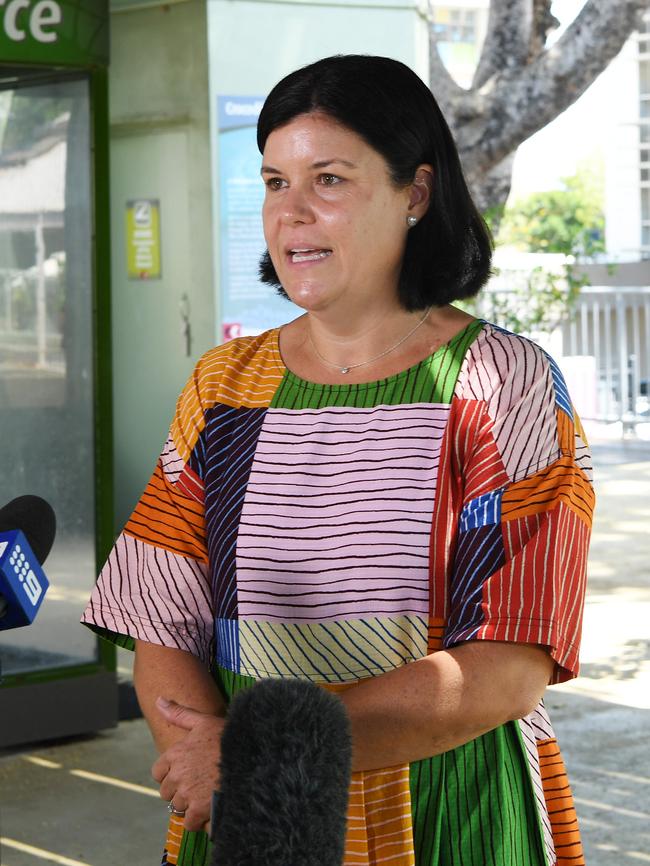
NT chief health officer Natasha Fyles confirmed the latest changes.
“When we saw the cases build on Sunday from four to 17, the Chief Health Officer, based on advice from the AHPPC and the Chief Health Officer of South Australia … we made the decision to have the whole of South Australia declared a hot spot,” Ms Fyles said.
“We did not know at that point … where the virus may have spread to,” she said.
“So based on the early information we went hard, we went wide but now based on more clinical information we are able to reduce the hot spot declaration to Adelaide and surrounding suburbs.”
The NT government had to charter a flight from an Alice Springs quarantine facility to Darwin’s Howard Springs after it reached capacity last night.
Ms Fyles clarified anyone in quarantine in the NT who resided outside of Adelaide city and surrounding suburbs could now leave isolation facilities.
Read more: WA shut to SA after outbreak
Jared Lynch 11.15am: Aristocrat dividend defies profit slump, JobKeeper
Poker machine maker Aristocrat Leisure will continue to pay shareholders a dividend, despite tapping the Morrison government for millions of dollars in JobKeeper payments and suffering a halving of full year net profit.
The company, backed by billionaire Len Ainsworth, accessed $13.3m from the federal government‘s JobKeeper wage subsidy scheme in the year to September 30.
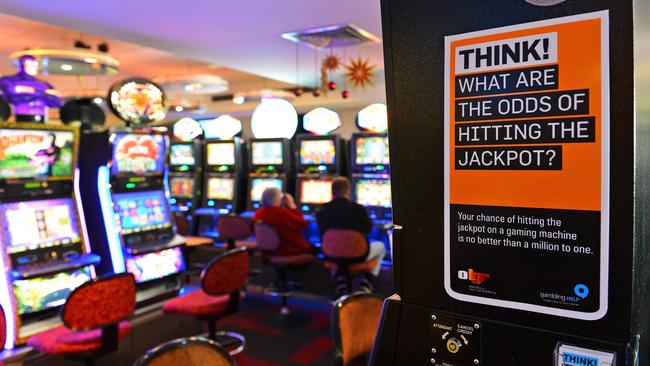
It will pay shareholders a dividend of 10c a share, fully franked, on December 18 – a decrease of 82 per cent on the prior year. The payout comes after Aristocrat suspended its interim dividend in May to strengthen its balance sheet.
The company’s full-year net profit dived 52.6 per cent to $357.1m. Meanwhile, revenue eased 5.9 per cent $4.1bn.
But its earnings result wasn’t all red ink. Revenue in its digital gaming business surged 29 per cent to $US1.6bn ($2.2bn) largely offsetting a 32 per cent decline in its ‘land based’ revenue, which generated $US934.7m.
Read the full story here.
Angelica Snowden 11am: ‘We know what’s best’: Cook defends WA’s border
The federal government should “stop criticising” the states over border decisions from the sidelines, Western Australia health minister and Deputy Premier Roger Cook says.
“We know what’s best for Western Australia,” Mr Cook told the ABC.
“Our focus is on keeping Western Australians safe because that’s allowed us to open our economy more than anywhere in the country,” he said.
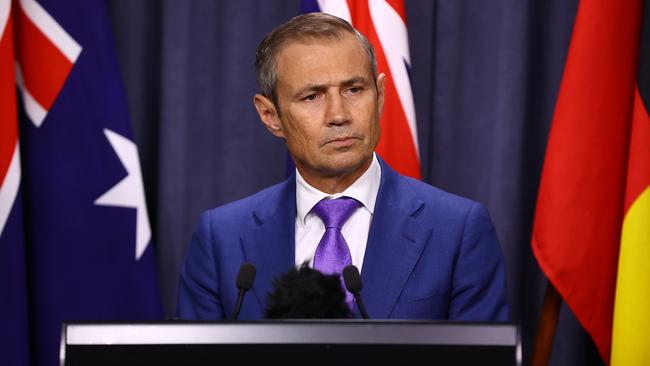
“Over the next 24-48 hours we will be able to see how this outbreak has been contained.”
Residents from Queensland, Tasmania, the Northern Territory and the ACT are allowed to visit Western Australia. But South Australians, Victorians and residents from NSW are not permitted to enter the western state.
Mr Cook lauded WA’s hard border lockdown which allowed it to remain virus free for seven months now.
“We are the engine room of the nation’s economy when it comes to our iron ore industry, oil and gas, and, of course, other mining activity,” he said.
“We have been able to keep all that activity going throughout the whole COVID-19 pandemic experience because we have had this hard border.
The community outbreak of COVID-19 in South Australia is extremely serious. Yesterday, we acted swiftly to strengthen our controlled border regime.
— Mark McGowan (@MarkMcGowanMP) November 16, 2020
Today, on further advice from our CHO, we have decided to take further steps to protect our State. pic.twitter.com/OrMOT1cUUN
“The fact that we’ve been able to keep these key industries going really underpins the rest of the nation and particularly the Commonwealth’s finances so we should have less criticism of what we’ve done here in Western Australia, perhaps some acknowledgment of how successful the Premier has been in keeping Western Australians safe.”
Read more: Celebrations as WA border reopens
AFP 10.45am: Vaccine not required for Tokyo athletes
Athletes won’t be required to take a coronavirus vaccine to compete at the Tokyo Olympics, IOC chief Thomas Bach has said, adding that mandatory shots would be “going too far”.
Bach, who is in Tokyo to bolster confidence in the pandemic-postponed event, said taking a vaccine would be a “free decision” for athletes and others involved in the Games.
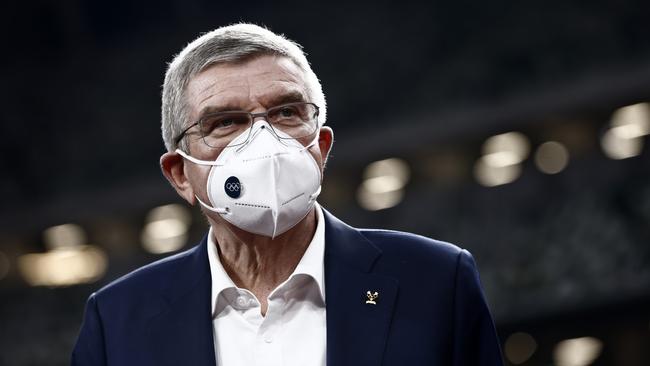
“There are too many issues to consider. This is a question of private health,” the International Olympic Committee president said during a tour of the Olympic Village.
“It is a question also of (the) health conditions of each and every person. It’s a question of availability.”
However, the IOC will “appeal” to athletes and others to be vaccinated, Bach added, calling it a “sign of respect” for other competitors and the Japanese hosts.
Tokyo 2020 was put back by a year to start next July because of the coronavirus, becoming the first Olympics to be rescheduled in peacetime.
Read the full story here.
Angelica Snowden 10.30am: Gates open, but monitoring SA by the hour
Victoria will continue to allow South Australians to visit, but will monitor any changes to a COVID outbreak in Adelaide hour-by-hour.
Victoria’s health minister Martin Foley made the comments earlier this morning and reaffirmed his state’s commitment to ensuring all borders are open by Christmas.
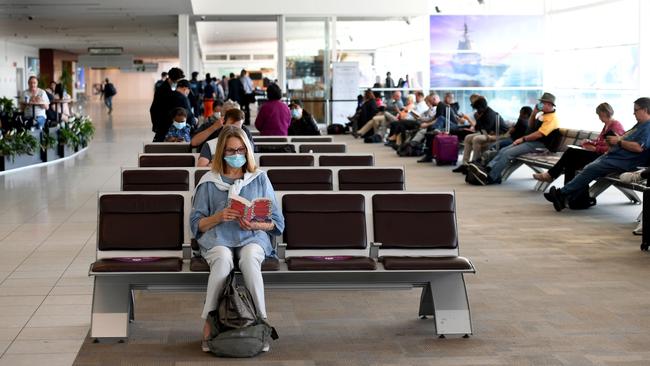
“We’ve got no plans to close our borders but we are monitoring literally on an hourly basis the situation in South Australia,” Mr Foley told the Today show.
“We don’t see any need based on the evidence and based on the results from South Australia to close the border, but of course we reserve the right to take further measure, if the advice changes,” he said.
Testing would be ramped up for truck drivers coming into Victoria from South Australia, Mr Foley confirmed.
Read more: Adelaide, heading for the hills a valid option
Remy Varga 10.25am: Managing outbreaks shouldn’t limit economy: Finkel
Chief scientist Alan Finkel says all Australia’s states and territories can now handle coronavirus outbreaks without limiting economic activity and community movement.
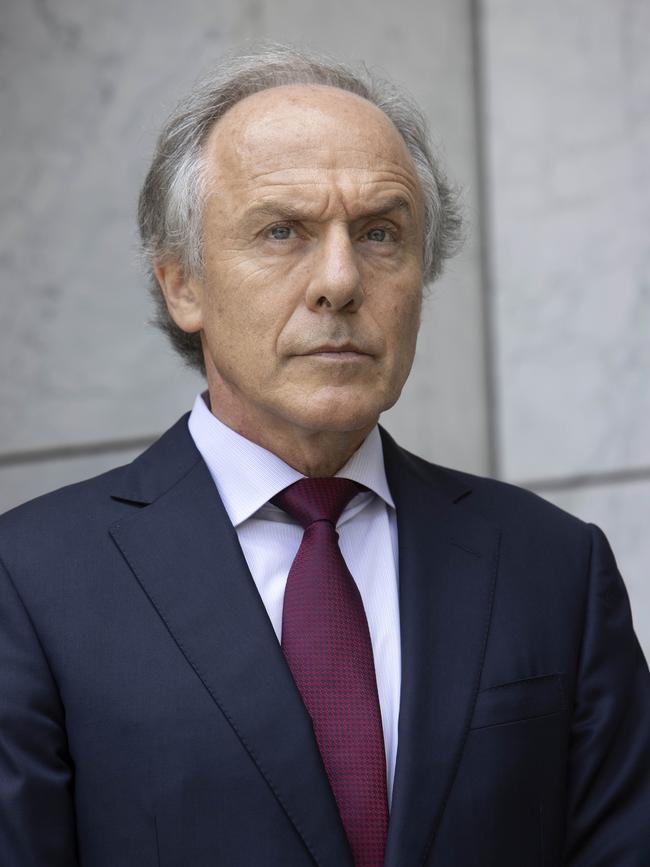
Giving testimony at a parliamentary inquiry into Victoria’s contact tracing system on Wednesday, Professor Finkel said he felt confident in the country’s system again following a recently completed national review.
“We saw that systems are now in place to minimise risk while maintaining an active economy and community mobility,” he said.
Professor Finkel said Victorian authorities were developing surge capacity to handle around 350 new cases each day.
Read more: Health officials front parliamentary inquiry
Adeshola Ore 10.10am: Decisive virus policy made ‘world of difference’
BHP chief executive Mike Henry said Australia’s decisive government policy made a “world of difference” in containing coronavirus.
“Australia is showing some positive green shoots as we transition to recovery,” he said.
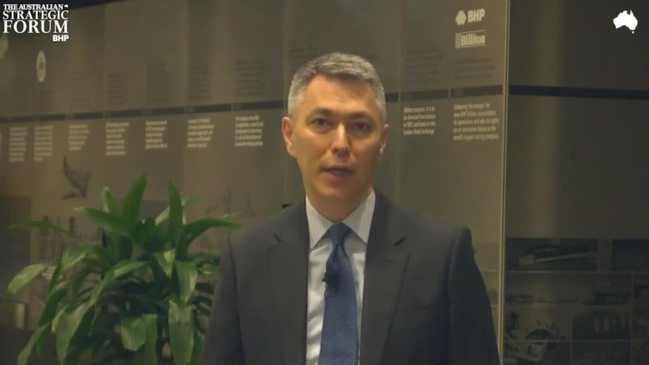
“We are an export dependent trading nation and overall these have remained resilient.”
But he said China’s demand for our resources will likely plateau.
Mr Henry said Australia’s recent signing of the major regional trade agreement is encouraging for reinvigorating relationships and forging closer ties.
He said Australia’s strength lies in being able to access other parts of the world.
Continue reading: The Australian’s Strategic Forum .
Angelica Snowden 9.55am: Diplomat breaks ACT’s one month case-free streak
A diplomat who returned to Canberra from overseas has contracted COVID-19, breaking the territory’s one month coronavirus-free streak.
ACT Health confirmed the 30-year-old man flew into Sydney international airport on November 15 and travelled to Canberra by a private car.
ACT COVID-19 update (18 November 2020)
— ACT Health (@ACTHealth) November 17, 2020
â–ªï¸ Cases today: 1 (overseas acquired)
â–ªï¸ Active cases: 1
â–ªï¸ Total cases: 115
â–ªï¸ Recovered: 111
â–ªï¸ Lives lost: 3
â–ªï¸ Test results (past 24 hours): 729
â–ªï¸ Negative tests: 114,955
â„¹ï¸ https://t.co/YGW9pOHG3e pic.twitter.com/rYPi9Dm3To
“He has been in quarantine since his arrival and has followed all quarantine measures for returning overseas travellers,” an ACT Health statement read.
Two close contacts of the diplomat have been identified through contact tracing.
The territory is expected to receive more positive coronavirus over coming months cases as residents return to Australia from overseas.
The latest COVID case is the third time a diplomat has contracted coronavirus from overseas before returning to Canberra.
Most recently, a man in his 70s contracted the virus while overseas and was counted in the ACT’s COVID tally on October 22.
Another diplomat tested positive to COVID-19 in June.
Read more: Diplomat is ACT’s first positive case in 104 days
Angelica Snowden 9.45am: ‘Friends in Adelaide, don’t come to NSW’: Hazzard
NSW Health Minister Brad Hazzard has urged South Australians not to visit his state until a COVID-19 outbreak has been “sorted”, after cautioning NSW residents against non-essential travel.
“Basically anybody who is thinking of travelling to Adelaide, it might be wise if you don’t for the time being unless it’s essential business or very important family business but even then be extremely cautious,” Mr Hazzard told the Today show.
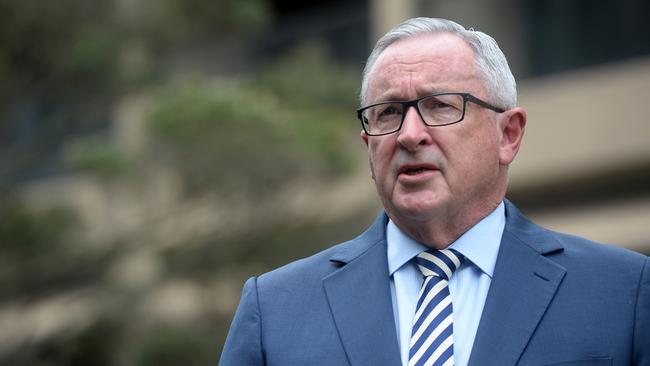
“I have to say to our friends in Adelaide, don’t come to NSW unless you really have to – family or really imperative business. Don’t come until things are sorted,” he said.
Mr Hazzard has announced that surveillance would be stepped up at Sydney airports after two flights from Adelaide landed in Sydney at about 8.30am this morning.
“Whenever a flight comes in now we are doing a full check, asking where people are going,” he said.
He said incoming passengers travelling to NSW will be asked to complete an electronic form with information on where they are planning to visit.
Mr Hazzard said NSW does “intend” to keep borders open but pleaded with people not to travel unless it was essential.
“I was talking to the South Australian Health Minister, we will all work together and try to make sure our state borders stay open … we need to support other states and territories,” he said.
As Christmas looms, the health minister said Premier Gladys Berejiklian was considering how she could further ease restrictions.
“We are doing well but we are not cocky,” he said.
“We still have to be really, really cautious. I think until we have got a vaccine and a treatment, or preferably both, we all have to be cautious.”
Read more: Morrison sends troops to save Christmas from South Australian outbreak
Erin Lyons 9.35am: Residents stuck in 10-hour wait at SA testing clinics
It appears the South Australian government’s message has hit home for Adelaide residents who have turned out in droves at the state’s COVID-19 testing clinics, triggering queues in excess of 10 hours.
There are now 20 cases linked to the latest outbreak, and more than a dozen “high risk” (close contacts or showing symptoms) residents are likely to return positive results.
But SA chief health officer Nicola Spurrier said it was too early to tell how widespread the virus was in the community.
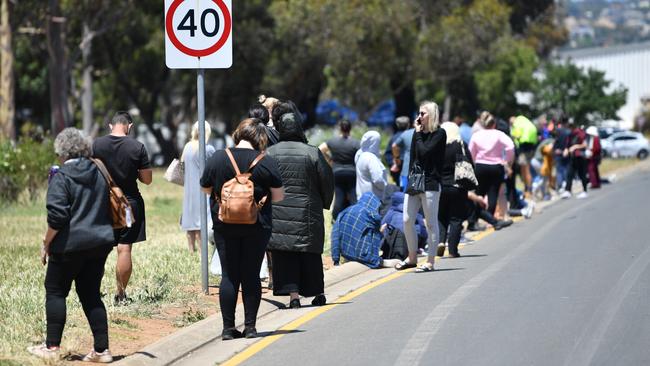
Many residents arrived at the city’s Parafield testing site before sunrise to secure a spot in the queue ahead of a huge day of testing.
Some have come armed with deck chairs and umbrellas, and they’re being urged to bring water and snacks ahead of a long day in the queue.
Nurse Sarah Crocker, who is swabbing patients across several Adelaide clinics, is urging residents to arrive at least an hour-and-a-half before testing sites are due to open.
She said some wait times had stretched beyond 10 hours but on average were hovering between the six and eight-hour mark.
Read the full story here.
Angelica Snowden 9.10am: CFMEU officials targeted in AFP raids
Raids targeting Construction, Forestry, Mining and Energy Union officials are being conducted by the Australian Federal Police this morning in Sydney.
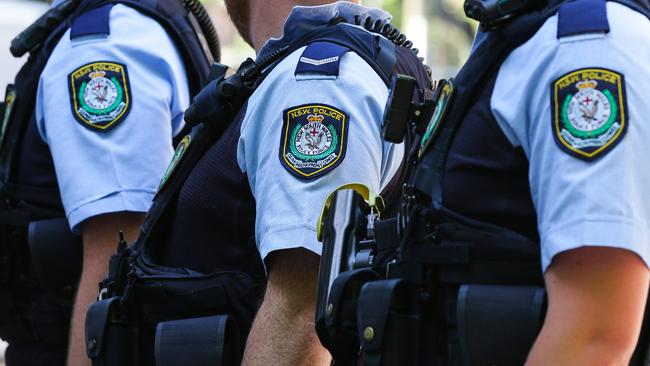
A number of search warrants have been executed with the assistance of NSW Police, who are members of the Trade Union Taskforce.
The raids started early this morning and are ongoing. No arrests have been made.
“A trade union task force investigation has resulted in the execution of search warrants in Sydney today,” an AFP spokeswoman said.
“As this remains an ongoing investigation no further information can be provided at this time.”
Read the full story here.
Rachel Baxendale 8.50am: Victoria records 19 days without a new case
Victoria has recorded its 19th straight day with no new cases of coronavirus and no deaths.
The figures come after 17,354 tests were processed in the 24 hours to Wednesday – comparable with 17,412 tests processed in the 24 hours to Tuesday and up from just 6,695 on Monday.
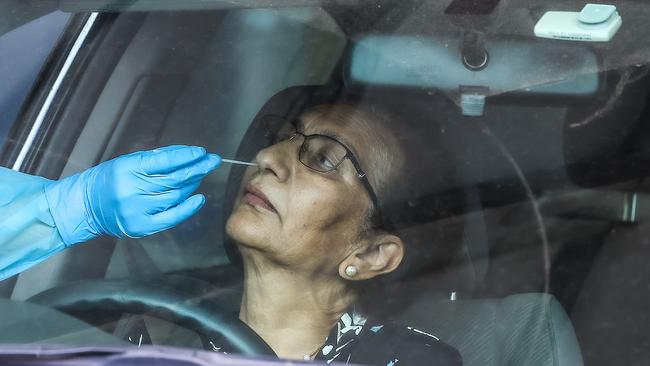
Three known active cases remain in Victoria, two of which include patients who have been in hospital for more than a fortnight.
Yesterday there were no new cases and no lost lives reported. Three active cases remain, none with an unknown source. 17,354 test results were received, thank you Victorians, #EveryTestHelps https://t.co/eTputEZdhs #StaySafeStayOpen #COVID19VicData pic.twitter.com/WF3UbRZh2W
— VicGovDHHS (@VicGovDHHS) November 17, 2020
Read more: Melbourne to get $1.8 billion CSL vaccine factory
Angelica Snowden 8.30am: Berejiklian returns negative Covid test
NSW Premier Gladys Berejiklian has confirmed that a COVID-19 test she took last night has returned negative.
“Can I also thank the more than 17,000 people who got tested for COVID to 8pm last night to which I was one and I was negative,” Ms Berejiklian said.
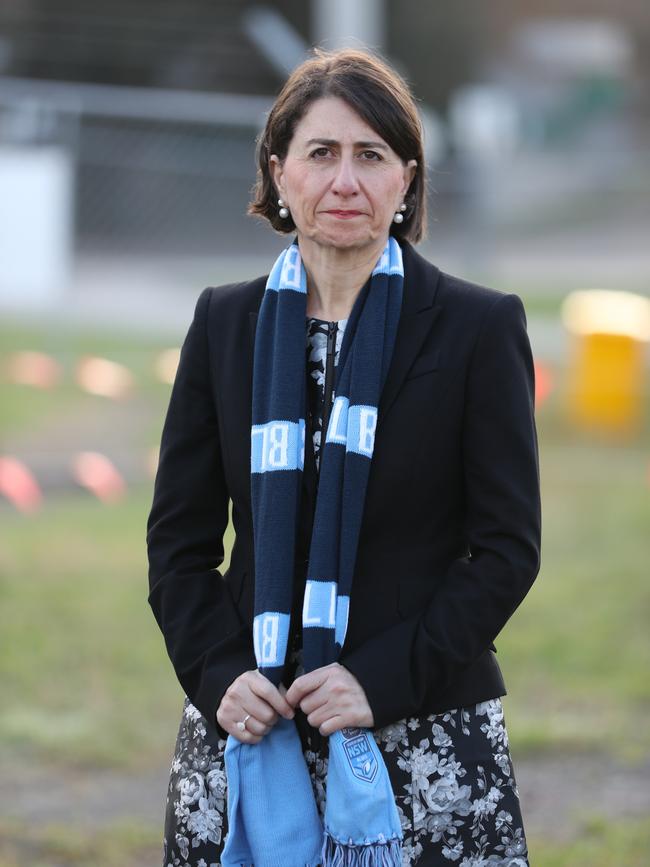
The Premier confirmed NSW has gone another day th no community transmission.
NSW will also update travel its advice and urge residents not to visit South Australia as COVID-19 cluster broke out in the state.
“The borders are completely open, but if it is non-essential travel think about whether you want to go in the next few days,” she said.
“We are confident South Australia has it under control we are just saying to our community yes our borders are completely open but if you can delay travel for a few days … please do so.”
There are currently seven coronavirus cases in hotel quarantine.
Read more: No new cases, Berejiklian returns negative test
Angelica Snowden 8am: ‘Open for Christmas … pretty hollow words now’
Australia’s states and territories have “turned their backs on each other” amid border wars over COVID-19 outbreaks, says Australian Industry Group chief executive Innes Willox.
“We used to be one country but now it seems like we are eight states and territories before we’re Australian,” Mr Willox said told on the Today show.
“We agreed to be open for Christmas … those seem like pretty hollow words now,” he said.
“So the idea of being one country trying to deal with this virus and work our way through seems to be a bit of a joke sadly.”
After a coronavirus outbreak in South Australia which reached 20 cases on Tuesday, Western Australia, Queensland, the Northern Territory and Tasmania announced their borders would close to the sudden state.
“It makes it really, really difficult for business to plan. We are already seeing concerns and reports around shortages of fruit and vegetables and other supplies for Christmas,” he said.
Australia's states and territories are at odds this morning, with only some restricting access to people coming from Adelaide. #9Today pic.twitter.com/F492A4m0LL
— The Today Show (@TheTodayShow) November 17, 2020
“So business thinking about planning ahead, they really can’t. It’s a day-by-day, almost hour by hour situation now. Because they don’t know what a state government will do next. That gives no certainty for business.
“I mean, realistically, who is going to invest in Queensland or WA at the moment when you’re thinking that you could just be turned around at the border at the drop of a hat.”
Read more: Open borders to rekindle the vitality of Federation
Angelica Snowden 7.30am: Positive case shuts Flinders University
Flinders University has been forced to close after it became aware a person who contracted COVID-19 had visited the campus.
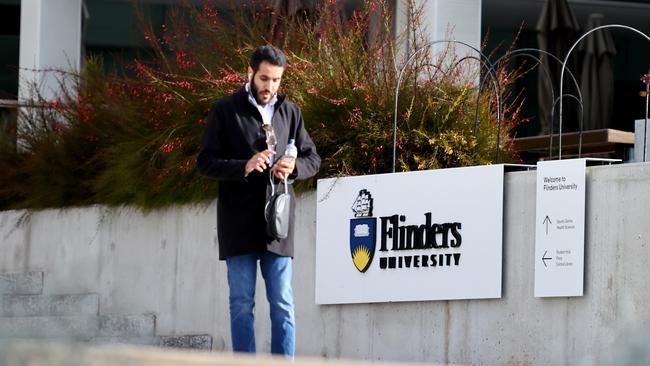
In a statement released on Wednesday, the Adelaide-based university confirmed a coronavirus case had attended its Sturt campus and staff and students have been asked to work remotely until Monday.
“Flinders University has just been notified that a person who has today tested positive to COVID-19 has attended the IELI Intensive English Language Institute on Sturt Campus in recent days,” the statement read.
SA Health advises a person who today tested positive to COVID-19 recently attended the IELI Intensive English Language Institute on Sturt Campus. No confirmed student or staff cases. Sturt Campus is closed for precautionary cleaning. Read the full update. https://t.co/SSqgt3wJ5E
— Flinders University (@Flinders) November 17, 2020
Five new cases of COVID-19 were reported in South Australia on Tuesday with a COVID-19 cluster reaching a total of 20 cases.
“Out of an abundance of caution, effective immediately, all buildings on the Sturt Campus are closed while deep cleaning of the IELI rooms and shared/ common spaces of Sturt Campus is conducted.”
South Australian COVID-19 update 17/11/20. For more information go to https://t.co/e4B14lR2Vd or contact the South Australian COVID-19 Information Line on 1800 253 787. pic.twitter.com/r9w4ZS09Oa
— SA Health (@SAHealth) November 17, 2020
Read more: Troubled times ahead, but don’t write off universities yet
Angelica Snowden 7.05am: Cases up but Florida insists no lockdown
As new coronavirus cases soar to record highs across the US, many states have had little choice but to reimpose harsh Covid restrictions. Every state that is, but Florida.
Republican Governor Ron DeSantis will allow bars, restaurants, theatres and theme parks to operate at full capacity and has vowed his state would never again implement lockdowns.
Local governments’ ability to enforce mask mandates and other restrictions is constrained under an executive order he issued in September.
JUST WEAR THE MASK. Cover your mouth AND nose. Stay 6 feet from others. Wash your hands. Stay home if you can. #COVID19 cases are rising fast. If we don’t act together and do what we can to slow the spread, thousands more could die.
— CDC (@CDCgov) November 13, 2020
Get the facts: https://t.co/DmfPOAPMjW. pic.twitter.com/i6ggvfcnBD
Mr DeSantis has spotlighted researchers who advocate pursuing herd immunity by allowing younger and less-vulnerable people to move about normally and expose themselves to infection.
Florida had 27 new coronavirus cases per 100,000 people in the past week, compared with 198.9 in North Dakota – currently the hardest-hit state – and 46.2 nationally, according to the Centre for Disease Control and Prevention.
But the number of new cases and hospitalisations in Florida have been steadily climbing for weeks, based on data compiled by the Covid Tracking Project.
Americans want us to cooperate. They want us to deliver results. That’s the choice Kamala and I will make. That's why I am pleased that today we were able to bring together business and labor leaders to make that choice with us.
— Joe Biden (@JoeBiden) November 16, 2020
We’re all Americans. Let’s get to work together.
On Saturday, the daily case count reached nearly 10,000, the highest since late July.
“We have started another surge,” said Mary Jo Trepka, an epidemiologist at Florida International University.
“It’s much easier to go up quickly than to go down quickly. We’ve found this now twice (in Florida).”
It came after the county’s top infectious diseases expert Anthony Fauci called for a “uniform” approach to manage the pandemic not a disjointed state-by-state response, New York Times reported.
“We need some fundamental public health measures that everyone should be adhering to, not a disjointed ‘One state says one thing, the other state says another thing,’” said Dr Fauci.
He also said presidential transitions were “extremely important” as Donald Trump continues to bar President-elect Joe Biden from co-ordinating with the current administration.
“I’ve been through five transitions … I can say that transitions are extremely important to the smooth continuity of whatever you’re doing,” he said.
“We need to transition to the team that will be doing it, similar to how we’re doing it.”
With Dow Jones
Read more: Biden warns a standoff will cause deaths
Angelica Snowden 6.30am: Moderna urges nations to fast-track vaccine orders
The CEO of US biotech company Moderna has warned European countries if they drag out negotiations to buy its promising COVID-19 deliveries could be slowed down while other nations who have signed deals will get priority.
The number of coronavirus infections in Europe climbed past 15 million on Tuesday, as the coronavirus crisis continued to rage in the region.
“It is clear that with a delay this is not going to limit the total amount but it is going to slow down delivery,” Moderna CEO Stephane Bancel said.
We just announced that the European Medicines Agency has begun a rolling review of mRNA-1273, our mRNA vaccine candidate against COVID-19. Read more: https://t.co/ncsLXRWB5X pic.twitter.com/AnxDrmnrgG
— Moderna (@moderna_tx) November 17, 2020
Moderna announced this week that its experimental vaccine is almost 95 per cent effective in protecting people from the coronavirus, further boosting hopes of an end to the pandemic after Pfizer released similar findings last week about its vaccine.
In coming weeks both are expected to ask American, European and other authorities for approval to roll out their vaccines for widespread use, as the world reels from another surge in COVID-19 cases.
I am thrilled to hear the good news coming out of @moderna_tx’s #COVID19 vaccine development program. Our companies share a common goal – defeating this dreaded disease – and today we congratulate everyone at Moderna and share in the joy of their encouraging results.
— AlbertBourla (@AlbertBourla) November 16, 2020
Over the summer Moderna engaged in discussions with the European Commission, the executive arm of the EU, about buying 80 million doses of the vaccine but no contract has been signed, Mr Bancel said.
He said there was a significant amount of red tape involved in getting a vaccine approved which would be complicated by the EU having 27 member nations.
Europe is one of the worst-hit regions in the world, ahead of Latin America and the Caribbean, which together have recorded 12.1 million cases. Asia has recorded 11.5 million cases.
This is not the time for complacency. We're encouraged by the news about #COVID19 vaccines & other new tools, but we're extremely concerned by the surge in cases in some countries.@WHO & partners are working with governments to help suppress the virus & save lives & livelihoods. pic.twitter.com/FM3tLoOtir
— Tedros Adhanom Ghebreyesus (@DrTedros) November 17, 2020
According to the World Health Organisation, Europe notched up 15,475,400 cases on Thursday.
France has recorded the most cases in Europe according to the John Hopkins university tally, with more than two million infections.
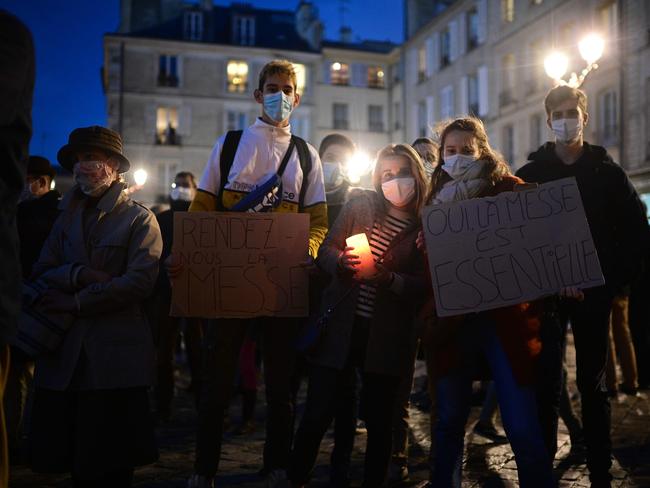
Russia has recorded just under two million cases, followed by Spain with 1.5 million and Britain with almost 1.4 million.
There were 3,643 deaths reported on Wednesday in the region — lower than the highest daily record of more than 5,000, recorded in April.
Globally, more than 55 million COVID-19 infections have been registered since the pandemic began early in the year. — with AFP
READ MORE: Why age is an advantage in a pandemic
David Penberthy 5.15am: ‘We can’t shut entire country with every transmission’
Australia must not be panicked into closing borders and “smashing the national economy” every time the coronavirus flares, South Australian Premier Steven Marshall said as three states shut their borders to the state despite it recording just five new cases on Tuesday.
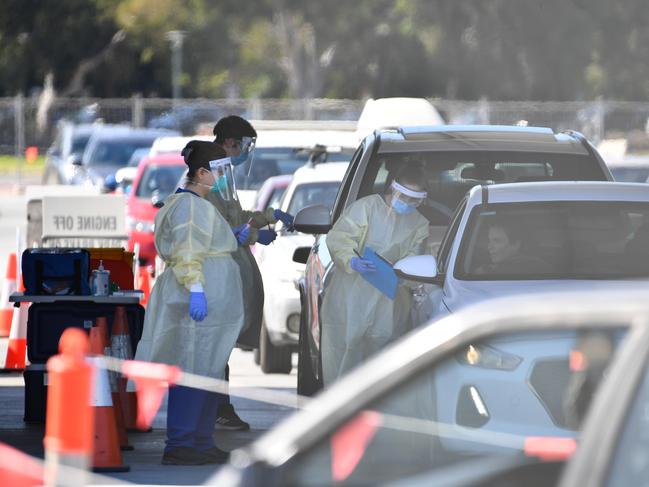
Mr Marshall said he understood why some states jumped on Monday when cases appeared to be surging in SA — the cluster currently stands at 20 cases — but argued that contact tracing and mass testing was the best way to deal with what would hopefully be a hastily contained threat.
Speaking to The Australian, Mr Marshall commended NSW, Victoria and the ACT for remaining open to SA visitors, but urged the other states and the NT to review their border closures on a scientific basis using infection data provided to their health departments.
“We are going to be living with this disease for a very long period of time,” Mr Marshall said.
“That means we have to invest very heavily in contact tracing and testing capability so that we can stay on top of these outbreaks and not smash our national economy.
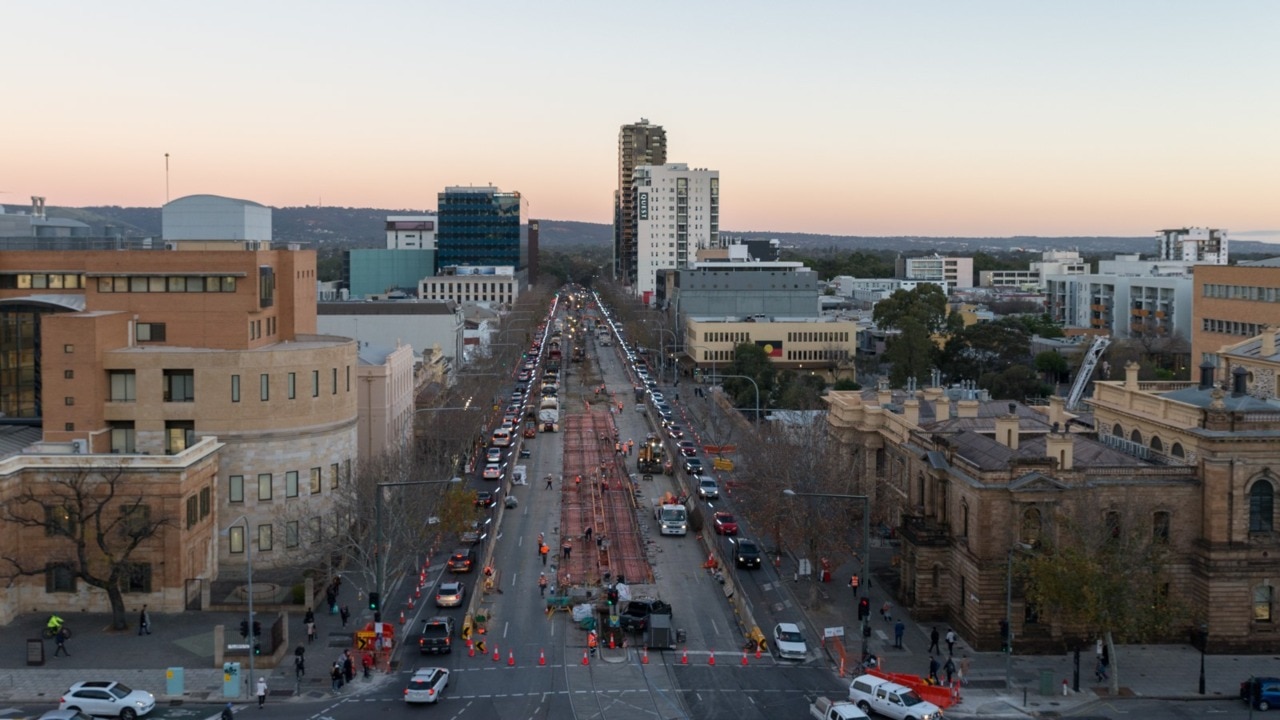
“We perfectly accept that individual states need to make their own decision. But ultimately we can’t have a situation where every single time there is an example of community transmission we shut up the entire country. We need to think about how we learn to live with this disease.”
Read the full story here.
Adam Creighton 5am: ‘1.6m NSW residents vaccinated by September’
More than 1.6 million NSW residents will have been vaccinated against COVID-19 by September next year according to the state’s budget, which has warned any delay in vaccine rollout will cost the state billions and slash population growth even further.
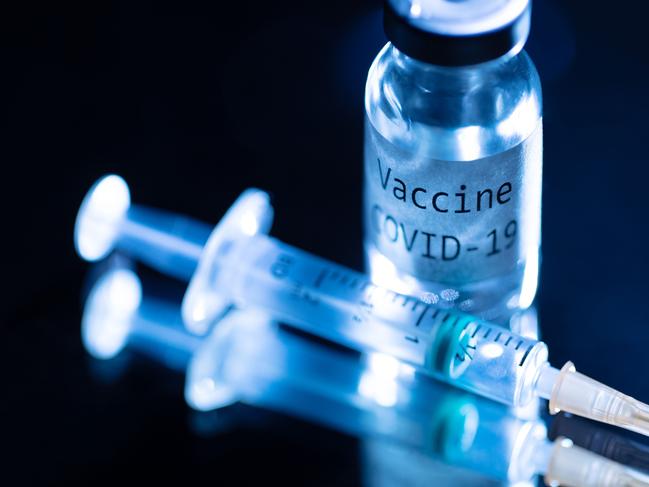
A delayed vaccine would see a further 1 per cent decline in the state’s population compared with the latest forecast, which the state government has already revised down by 376,000 people to just under 8.4 million by 2024, in the wake of the pandemic-induced slump in net immigration.
“A vaccine for COVID-19 will start to roll out in NSW from around the middle of 2021, with 20 per cent of people vaccinated by the end of the September quarter,” the NSW budget papers, delayed from June because of the uncertainty around the pandemic, say.
Read the full story here.
Emily Cosenza 4.45am: Supermarket owner urges SA to ‘calm your farm’
A South Australian supermarket chain has called for calm as mass panic buying, caused by a sudden spike in COVID-19 cases, surges across the state.
In a cheeky video posted to Twitter on Tuesday, Drakes Supermarkets Director John-Paul Drake said people needed to “calm the farm” amid the sudden increase in bulk toilet paper purchases.
Supermarket workers are calling for calm as COVID fears prompt a toilet paper rush. The latest in 7NEWS at 6pm. #7NEWS https://t.co/hi3ZsY1VI3
— 7NEWS Adelaide (@7NewsAdelaide) November 16, 2020
Coles has already imposed a two-packet limit for shoppers in a bid to ensure the items remain available to other shoppers.
In his address to “the state of Radelaide”, Mr Drake said there was no need to panic buy as they had enough toilet paper to go from “here, end on end, to (the) SpaceX rocket that got launched the other day”.
“There is so much toilet paper – you don’t need to be buying this in bulk,” Mr Drake said.
The owner of South Australian supermarket chain, Drakes has addressed the nation on toilet paper. @9NewsAdel pic.twitter.com/gOqBT5Pliz
— Georgia Westgarth (@G_Westgarth) November 17, 2020
Read the full story, by Emily Cosenza and Blake Antrobus, here.

